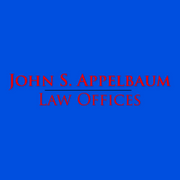What’s the Difference Between a Procedural & Substantive Defense?

In the U.S. court system, there are two general types of defense law attorneys can use to protect their clients’ rights. Known as a procedural defense and a substantive defense, these approaches are often employed in criminal cases. If you’ve recently been arrested for a crime, here’s how a legal professional might use these two aspects of the law to make a case on your behalf.
Procedural Defense
In a procedural defense, an attorney will argue that their defendant should not be held liable for a charge. This argument doesn’t factor in the guilt or innocence of the accused party; instead, it calls into question the court proceedings. Law enforcement officers, prosecutors, and judges must follow a Code of Criminal Procedure, and if there are any missteps, it could lead to charges being dropped.
 One example of a Code of Criminal Procedure is the fact that arrests must be made with probable cause. For instance, a police officer can’t pull a driver over and arrest them for driving under the influence without any cause for doing so (such as erratic driving). If there was no probable cause, an attorney would likely use procedural defense in their client’s case.
One example of a Code of Criminal Procedure is the fact that arrests must be made with probable cause. For instance, a police officer can’t pull a driver over and arrest them for driving under the influence without any cause for doing so (such as erratic driving). If there was no probable cause, an attorney would likely use procedural defense in their client’s case.
Substantive Defense
While procedural defenses focus on proceedings, substantive defenses look to the facts of the case—in other words, whether the defendant is innocent or guilty. Substantive law is enforced both on a state and federal level. To be found guilty of driving while intoxicated in substantive terms, a driver must have been over the legal limit for blood alcohol content and operating a vehicle on a public roadway. If an attorney can prove that these factors were not accurate, they would make a substantive defense for their case.
If you’re involved in a legal matter and seeking quality representation for your case, turn to John S. Appelbaum Law Offices. Offering counsel for family, traffic, and criminal law in Jefferson County, MO, this attorney is committed to maintaining the utmost level of confidentiality with his clients. Send the office a message online or call (636) 464-1855 to schedule a consultation.
About the Business
Have a question? Ask the experts!
Send your question

